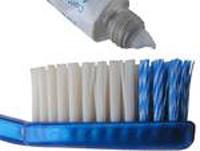Methods of teeth straightening
The permanent teeth are the second set of teeth that will last the rest of your life. They tend to be more yellow (and not just because of coffee) and are extremely hard. The final set of teeth is made up of 32 teeth, or 16 on each jaw. There are two central incisors for biting, two lateral incisors for biting, two canines for tearing and cutting, four premolars for chewing, and six molars for chewing. There are several corrections that you can make to the color of your teeth as well as the shape of your teeth! Some of the causes of tooth discoloration are staining, aging, chemical damage, disease, medication, and genetics. Dental Veneers (Tooth Veneers) are used to correct both the color and the shape of teeth. There are no known health risks of receiving composite fillings. If such a filling is not going to be enough to protect your damaged tooth, or if your tooth enamel is thin and will easily fracture, or if your tooth has had a root canal that weakened your tooth condition, your tooth may require additional protection such as a crown. |
Sexual disorders
Poor lubrication may result from insufficient excitement and stimulation, or from hormonal changes caused by menopause, pregnancy, or breast-feeding. Irritation from contraceptive creams and foams can also cause dryness, as can fear and anxiety about sex. Sexual dysfunctions are more common in the early adult years, with the majority of people seeking care for such conditions during their late twenties through thirties. The incidence increases again in the geriatric population, typically with gradual onset of symptoms that are associated most commonly with medical causes of sexual dysfunction. Sexual dysfunction is more common in people who abuse alcohol and drugs. It is also more likely in people suffering from diabetes and degenerative neurological disorders. Ongoing psychological problems, difficulty maintaining relationships or chronic disharmony with the current sexual partner can also interfere with sexual function. Abnormal levels of certain hormones, such as testosterone, thyroid hormone and a pituitary hormone known as prolactin, can interfere with erections and sex drive (libido). This is an uncommon cause of erectile dysfunction. Erectile dysfunction can occur suddenly or gradually. Some men slowly lose the firmness of their erections or how long the erections last. In other men, especially those whose impotence is largely caused by psychological factors, the problem may occur unpredictably and can improve at any time. Despite their difficulties with erections, men with impotence often continue to have normal orgasm and ejaculation. |
Hoodia - natural plant that helps fight fat
Hoodia Gordonii was discovered and used by the San tribe from the Kalahari, South Africa, since prehistoric times. They chewed the bitter Hoodia plant twice a day to suppress hunger and thirst during long hunting trips. This plant contains the miracle molecule p57 that was recently translated into a obesity cure. Real South African Hoodia is RARE and EXPENSIVE. It takes approximately 5 to 7 years for the Hoodia gordonii succulent to mature and provide appetite suppressant qualities. The African government has limited the amount of Hoodia it exports and the number of suppliers to receive it in the USA. Because of the growing awareness and popularity of this miracle herb, rip-off products that contain very little or no authentic Hoodia in them are beginning to flood the marketplace. The quickness and degree of results will vary depending on the frequency of use and other factors. However, you should start to see the beginning of the weight loss process within two weeks. Please note that the same as with any weight loss supplement, better results will be realized when taken in conjunction with a healthy diet and reasonable exercise. Mass global interest has been shown for Hoodia since Pfizer, the international pharmaceutical giant, started to research Hoodia's potential to help people with obesity. Pfizer recently discovered Hoodia and decided to invest millions into researching the plants benefits as a new drug that would help with obesity. The research published by this company has catapulted Hoodia into the international spotlight. |
|
|
Read our other articles:
Causes of worries
What is obese?
Hair care advises
Skin care solutions
Predicting potential problems
Women's discomfort from premenstrual syndrome